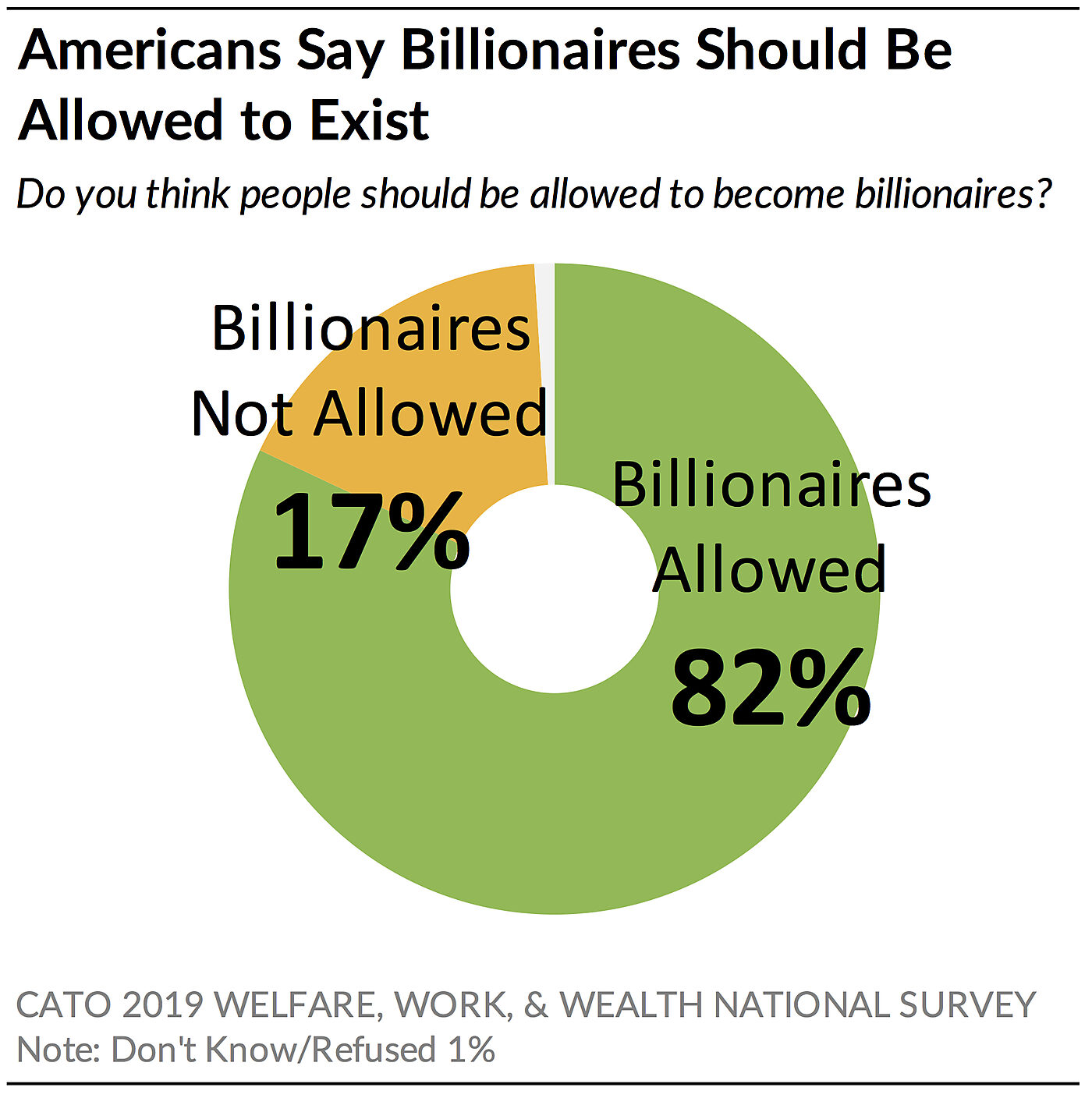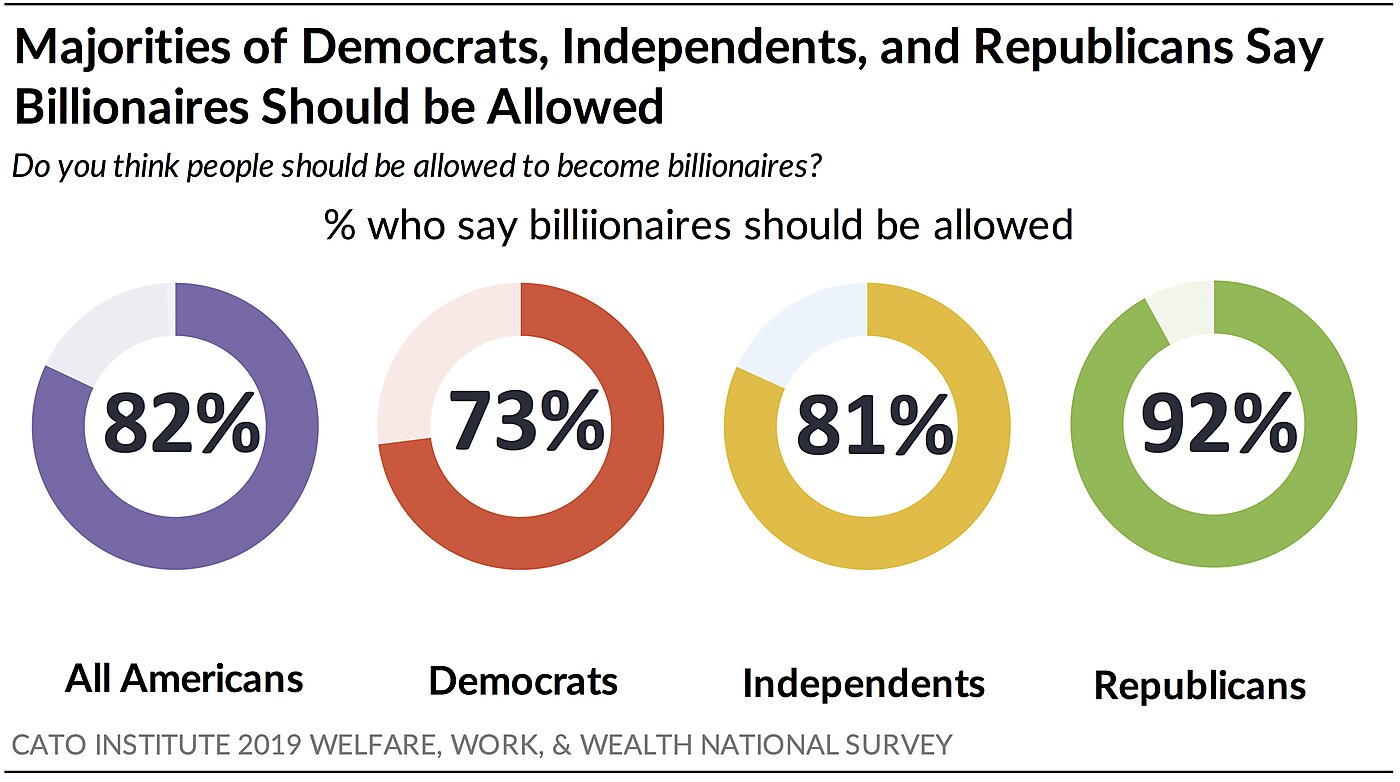This morning Democratic presidential hopeful Sen. Bernie Sanders (D‑VT) proposed a new wealth tax. According to The New York Times, the plan would cut the wealth of a typical billionaire in half within 15 years. Sanders reasoning? He asserted:“I don’t think that billionaires should exist.” He explained that the purpose of the plan is to “significantly reduce income and wealth inequality in America by telling the wealthiest families in this country they cannot have so much wealth.”
However, the Cato 2019 Welfare, Work, and Wealth National Survey released this morning finds that 82% of Americans think billionaires should be allowed. Less than a fifth (17%) think people should not be allowed to become billionaires.
These results are consistent with the same survey’s finding that 84% of Americans say there’s “nothing wrong with a person trying to make as much money as they honestly can.”
Full survey results and report found here.
Sanders’ view of billionaires is out of line with a majority of his own party. A strong majority (73%) of Democrats think people should be allowed to become billionaires, while 27% think they should not. Majorities of independents (79%) and Republicans (93%) also think that people should be allowed to become billionaires.
Although most Democrats would not go so far as to say billionaires should not exist, most support some form of wealth redistribution, which may benefit Sanders in the primary. The survey found that 58% of Democrats agree that “wealth should be taken from the rich and given to the poor.” However, most Americans disagree. Instead 62% of all Americans, including 64% of independents and 83% of Republicans oppose the redistribution of wealth.
Read more of the survey report here.
The Cato Institute 2019 Welfare, Work, and Wealth Survey was designed and conducted by the Cato Institute in collaboration with YouGov. YouGov collected responses online March 5 to 8, 2019 from a representative national sample of 1,700 Americans 18 years of age and older. The margin of error for the survey is +/- 2.2 percentage points at the 95% level of confidence.
Sign up here to receive forthcoming Cato Institute survey reports.




